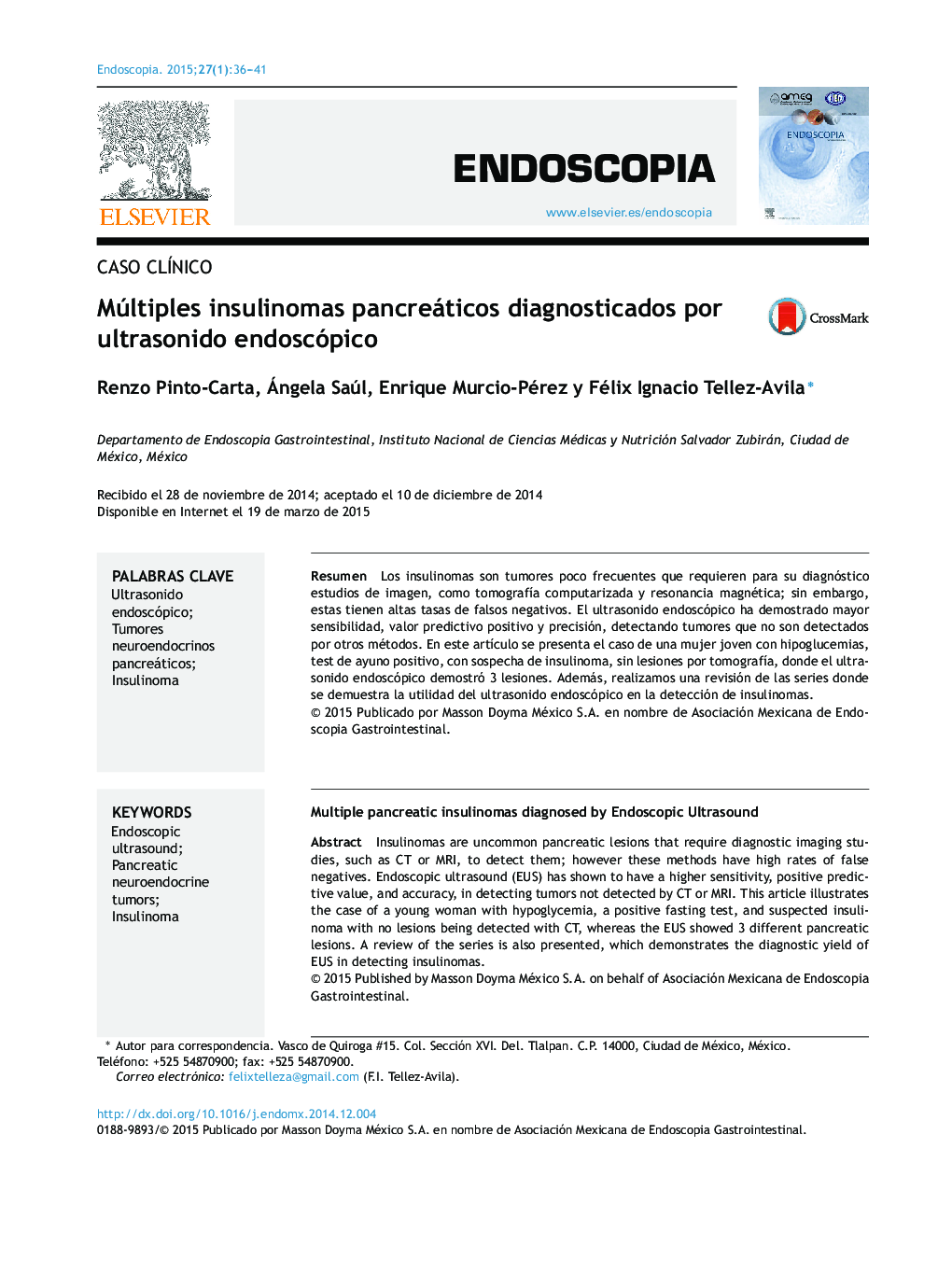| Article ID | Journal | Published Year | Pages | File Type |
|---|---|---|---|---|
| 3287531 | Endoscopia | 2015 | 6 Pages |
ResumenLos insulinomas son tumores poco frecuentes que requieren para su diagnóstico estudios de imagen, como tomografía computarizada y resonancia magnética; sin embargo, estas tienen altas tasas de falsos negativos. El ultrasonido endoscópico ha demostrado mayor sensibilidad, valor predictivo positivo y precisión, detectando tumores que no son detectados por otros métodos. En este artículo se presenta el caso de una mujer joven con hipoglucemias, test de ayuno positivo, con sospecha de insulinoma, sin lesiones por tomografía, donde el ultrasonido endoscópico demostró 3 lesiones. Además, realizamos una revisión de las series donde se demuestra la utilidad del ultrasonido endoscópico en la detección de insulinomas.
Insulinomas are uncommon pancreatic lesions that require diagnostic imaging studies, such as CT or MRI, to detect them; however these methods have high rates of false negatives. Endoscopic ultrasound (EUS) has shown to have a higher sensitivity, positive predictive value, and accuracy, in detecting tumors not detected by CT or MRI. This article illustrates the case of a young woman with hypoglycemia, a positive fasting test, and suspected insulinoma with no lesions being detected with CT, whereas the EUS showed 3 different pancreatic lesions. A review of the series is also presented, which demonstrates the diagnostic yield of EUS in detecting insulinomas.
